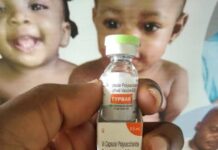Post Coital Dysphoria. Do You Have Anxiety Attack After Sex?
Have you heard of Post Coital dysphoria (PCD)? It is deep feeling of sadness, anxiety, or anger after sex. Even if sex was consensual and satisfying. They have strong feelings of sadness and tears lasting from 5minutes to 2 hours after sex. Nobody knows an exact cause of anxiety attack after sex.
Some people also call it Post Sex Blues.
Or Post Coital Tristesse.
Nobody knows the exact reason for it but there are theories around why it may happen.
However, the most important thing to say- to a couple experiencing this- is that it is normal and it happens in some people.
Who does it affect:
It tends to affect women more.
Especially younger women.
Some psychologists feel it may be hormone related, but all these are hypothesis that is not proven beyond reasonable doubts.
It also affects men, but the numbers are not as much compared to women.
How does it happen?
Remember this is NOT the same as expected agitation and sadness that normally follows rape, sexual violence or any of such things.
This is a feeling of intense sadness, regret, and anxiety following a consensual, enjoyable, satisfying sexual activity.
It can be a very confusing thing.
Because the person wonders why they feel that way but they just seem to have no control over it.
It is more emotional and psychological than being the result of a physical or medical problem.
And it can also be very scary for their partner too.
What can be done?
Usually it is more of counselling and reassurance.
The person’s partner only needs to comfort and be gentle with the person during that period while they have the unusual feelings.
Probably this is why some people say, cuddling after sex can be therapeutic.
If these symptoms become too frequent, or too worrisome, or too overwhelming that it is beginning to affect the couple too much, some times doctors try a very short course of some medications like (antidepressants) which many affected people have reported to be quite helpful.

In one study in the Journal of Sexual Medicine, Dr. Robert Schweitzer and colleagues looked at 230 female university students and found that 46 percent of those surveyed had experienced PCD at least once, while five percent had experienced it multiple times in the last one month.
So what are the possible explanations that people think may be responsible
Socialisation and Culture-
Many people have grown up in environments where sex is always seen as dirty or ungodly, and as such even if they are married, sex is unconsciously viewed that way unfortunately.
Women especially get slut shamed and looked down upon for having the same sexual adventures that men have, so psychologically there’s that feeling of guilt, sadness and regret more commonly in women after sex.
So once the pleasure and orgasm is over, the regret comes kicking.
Previous Sexual Assault:
Another hypothesis is that people who have been raped or have been victims of sexual assault tend to become very sensitive to sex/sexual activities and would always find sex to be quite triggering and reminiscent of that horrible traumatic experience.
So even if they have consensual sex with someone they chose and they now love, the very act of sex, automatically triggers all of that resentment and sadness in them as it reminds them of the sort of horror they went through.
This is worse if the trauma happened in childhood.
So what’s the way forward:
Men and women need to have conversations around this topic. Partners should have a healthy reassuring communication around this topic in a way that helps to reduce, if not eliminate, these feelings in someone who tends to suffer from them.
Society needs to actively put the responsibility of sexual discipline on BOTH men and women equally.
That women alone are made to bear the weight of any cultural shaming as regards sexual recklessness, may be having more psychological impact than we would ever be able to know.
And single/married and you noticed this is happening to you, please see a psychologist or a therapist. If you don’t have access to any, speak with your doctor, he can help you get one.
Dr Olufunmilayo





















